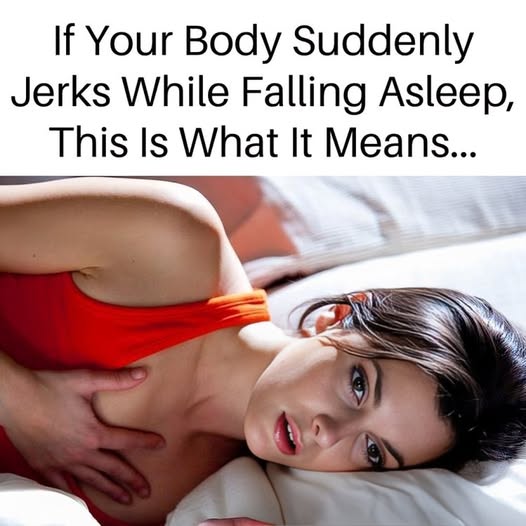
Have you ever fallen asleep and dreamt of falling, only to be jolted awake by a body jerk? This is a hypnic jerk. A 2016 study found 60 – 70% of people experience them.
The Stages of Sleep
Before looking into hypnic jerks, let’s review sleep stages:
- Stage One: When you start dozing off. It lasts a few minutes. Heartbeat, breathing, and eye movements slow. Muscles relax with occasional twitches. Brainwaves start to slow.
- Stage Two: A light – sleep phase before deeper sleep. Heartbeat and breathing slow more. Muscles relax further. Body temperature drops, and eye movements stop. Brain activity slows but has occasional electrical bursts.
- Stage Three: Needed for feeling refreshed in the morning. Heartbeat and muscles are at their slowest, muscles are relaxed, and it’s hard to wake you.
- REM Sleep: Happens about 90 minutes after falling asleep. Eyes move rapidly. Brain wave activity nears wakefulness levels. Breathing speeds up and gets irregular. Heart rate and blood pressure rise. Most dreaming occurs here. You cycle through these stages 4 – 5 times a night, with stage lengths varying.
Hypnic Jerks
Hypnic jerks are involuntary sleep movements during the transition from wakefulness to sleep. Also called hypnagogic jerks or sleep starts. They’re not fully understood. They’re more common when you’re sleep – deprived yet trying to make your brain work. Stanford sleep specialist Rafael Pelayo says it’s because parts of the nervous system are awake while others are asleep.
Think of a hypnic jerk as a misfire from the nervous system sending mixed signals. They usually occur when transitioning from wakefulness to stage one. Normally, REM sleep is 90 minutes after falling asleep, but when sleep – deprived, you skip stages two and three and go straight from stage one to REM. Pelayo says a hypnic jerk is the body’s way of saying you need sleep.
Are Hypnic Jerks Dangerous?
Thankfully, no. They’re scary in the moment but harmless and don’t need treatment. If you’re anxious after one and can’t fall back asleep, remind yourself it’s nothing to worry about. This may help you relax and go back to sleep.
Hypnic Jerks and Lack of Sleep
Sometimes, hypnic jerks happen when you can’t sleep, like during a lecture or meeting. If so, Pelayo suggests focusing on something important in the situation, making eye contact with the speaker, or having coffee if you know you’ll be sleepy.
Get 7 – 9 hours of sleep nightly to avoid being over – tired. Hypnic jerks aren’t dangerous but are a sign of not getting enough sleep. If they happen often, ask why you’re over – tired and consider making changes.